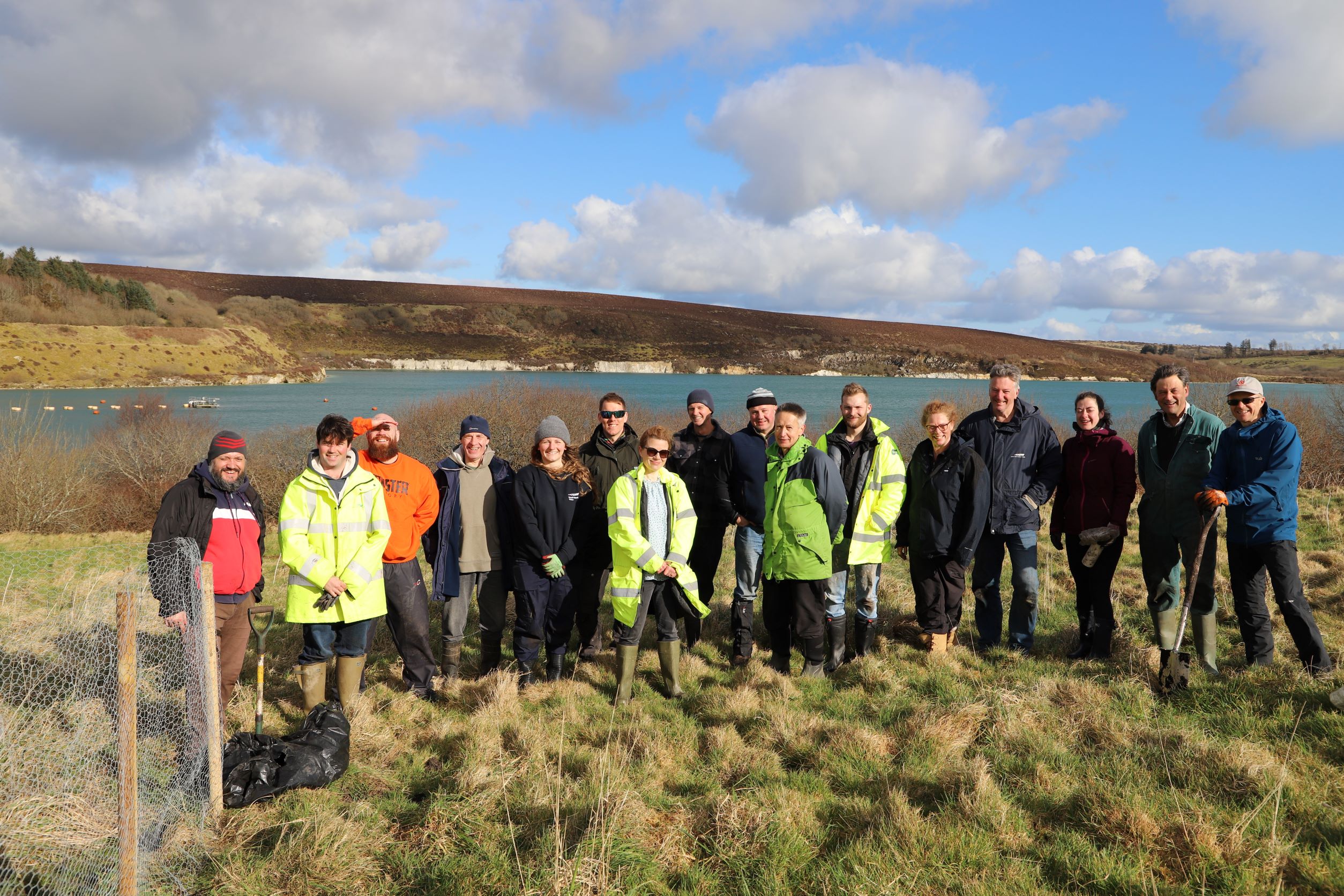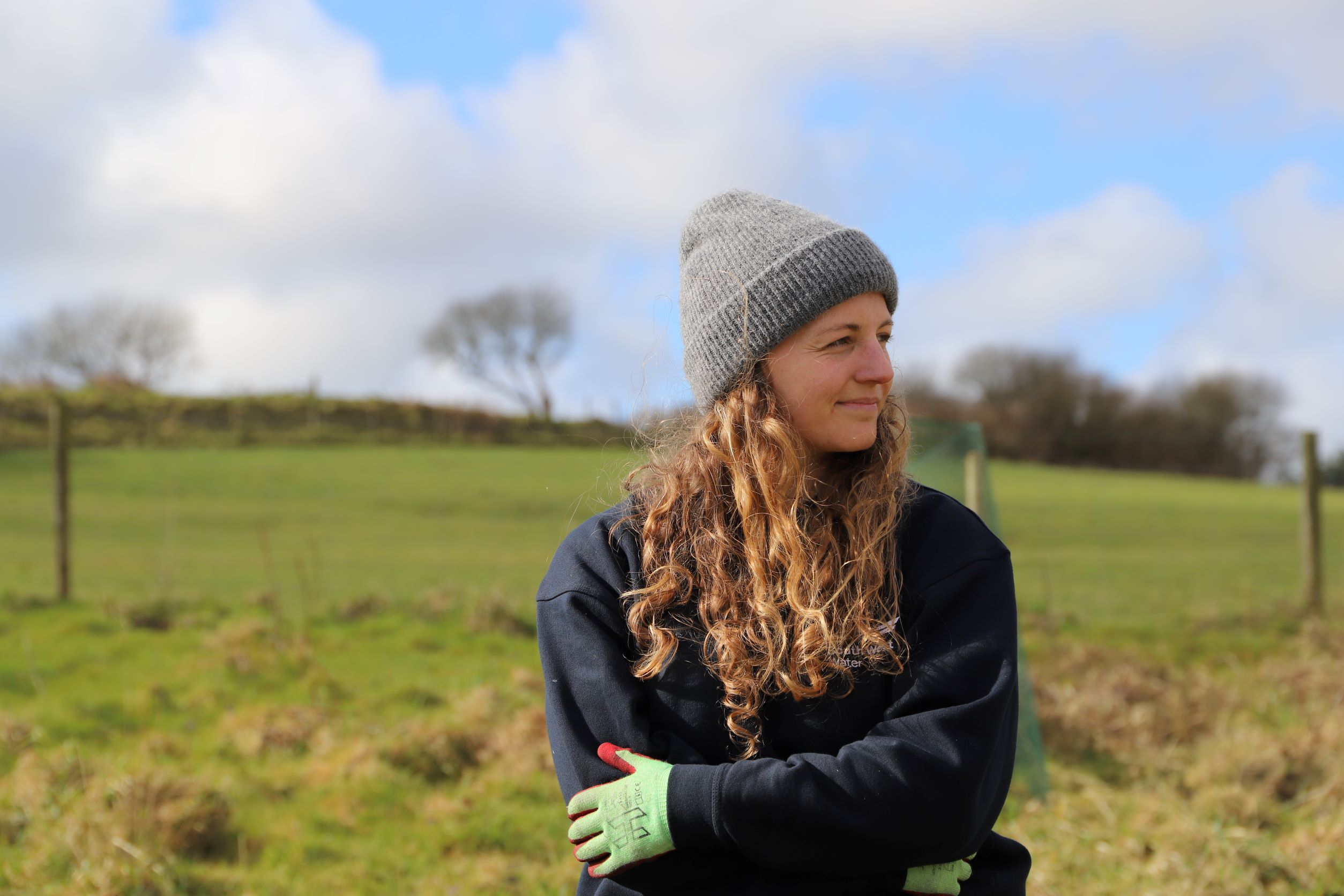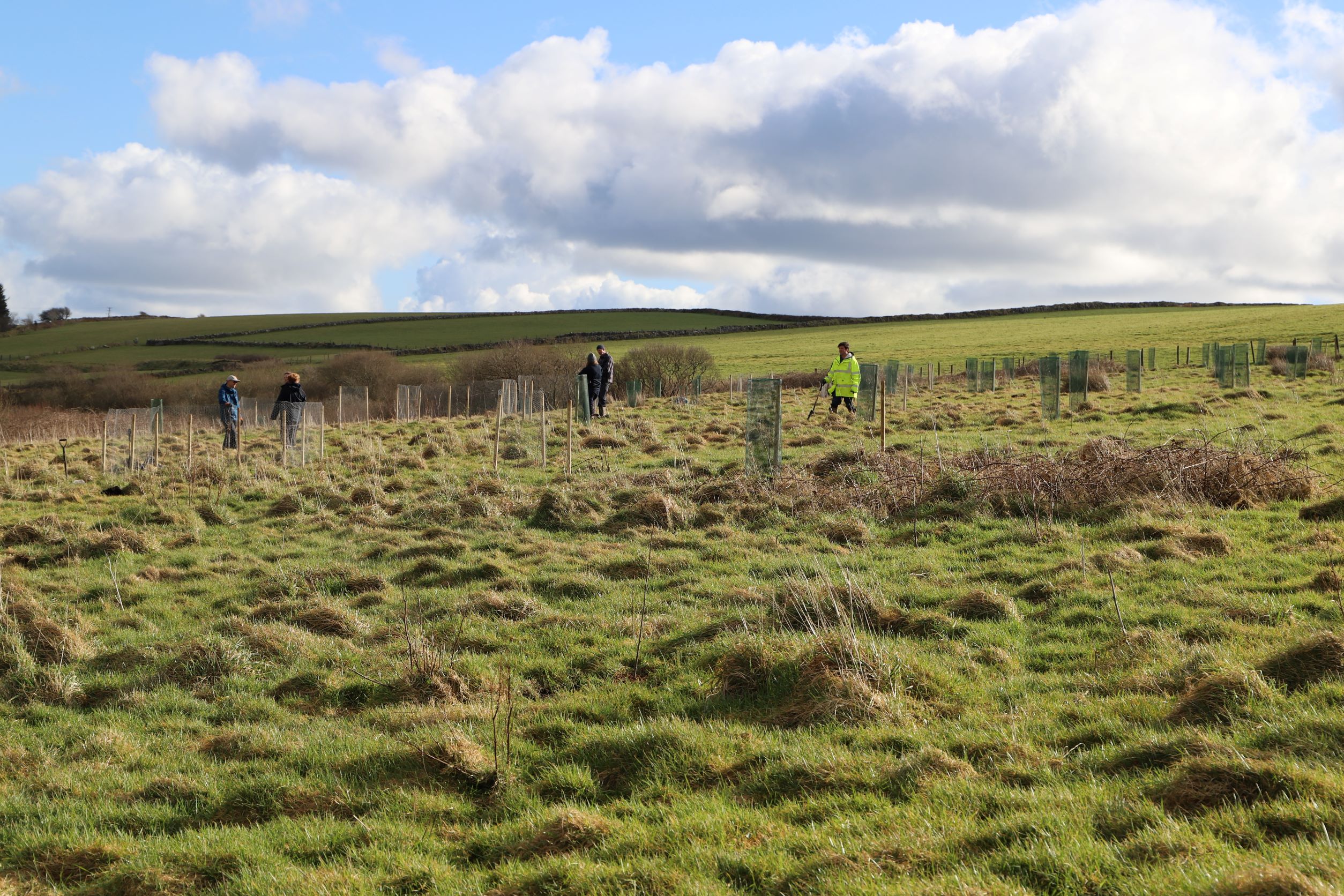A day in the life of Maggie, our Environment Action Co-ordinator!
25th March 2022

|
On the 4th March 2022 a group of us from across the company headed out to Park Lake on Bodmin Moor in Cornwall, on a mission to plant 500 trees. There were people from the Estates, Commercial, Property, Drinking Water, Asset Management, Communications and Natural Resources teams! Professional tree-planter, Steve gave us all a lesson on how to successfully plant the trees to encourage growth and diversity. The gorgeous location, a field very close to Colliford Lake, is now the home to oaks, hawthorns, willows and birch trees. At the end of a busy day of digging, planting, mulching and carrying, the new woodland was complete. To make the occasion extra-special, it was named after one of our fellow-planters and long-standing colleagues, Peregrine, who has overseen great changes to how we manage the environment on our sites. |
 |
The day was organised by our Environment Action Co-ordinator, Maggie. In her role, she looks into where improvements can be made on our sites to make them better places for biodiversity (plants and wildlife). Our treatment works, pumping stations and reservoirs are all huge operational sites, but within them, there are wildlife havens - hedges, woodland, grasslands, water. It’s Maggie’s job to spot ways we can look after these areas to make them better habitats for wildlife. “It’s astonishing how much there is,” she says, “rare things like orchids which we’re legally not allowed to cut. I once saw a Red Kite at Bastreet Water Treatment Works…we get lots of birds actually, because many of our sites are relatively undisturbed by people and often relatively secure from their natural predators. They also love the flies that come off the water.”
Maggie explained to me that tree planting is extremely important to not only the environment, but to water quality too. “It all works together. Trees help stabilise the soil, slowing the flow of water over the surface. This means that less of the topsoil is running off into the rivers. So, it has lots of benefits, not just for animals and plants.”
In her job, Maggie gets to visit sites all over the place. One trip to Cornwall became especially memorable. “Jules (my manager) and I were walking the parameter of the lake to seek out opportunities for habitat and peatland restorations, with two blokes who were showing us around. It was raining heavily, but we were nearly back to the car. Then we were faced by this moat, or river, it was as wide as a single track, and it was deep. Jules and I were like, “We can’t walk all the way back round now!” The boys were showing off and leaping over the water. So, in the end, we had to get take off our shoes and basically wade through the water above our knees to get back to the car. Nothing’s going to stop us on our mission!”.
“I love my job,” she continued, “it’s very rewarding and satisfying. I can do something in a day that will last a long time. Like today, we’ve planted a whole new woodland. I love getting out and about, getting a spade in the ground, and seeing what you’ve done at the end of the day. Sitting behind a desk is not for me, not my idea of fun.”
 |
 |
When I asked her what her proudest moment was, she told me about 14 key sites across Devon which have been selected to showcase what can be done to improve biodiversity. “It’s things like the way people are cutting the grass, or leaving scrub, or meadow areas,” she said. “It’s all about changing people’s perspectives and behaviours to realise new ways of doing things. My proudest moment was when I submitted the 14 management plans for each of these sites. This is the start of something big.”
Maggie is also excited by new opportunities for the public to get involved in the future, so watch this space. “But there’s so many benefits to the customers anyway because of how this work feeds into the rest of the business,” she explained. “The peatland restoration means reduced carbon in the air. We’re speeding up our environment awareness and there’s already been huge behavioural changes in the way we operate. We’re giving back more – for instance, when development on sites destroys habitats, we’ve pledged that we’ll leave sites 10-15% better than we found them.
“It’s all about improvement – not just doing what needs to be done, but going above and beyond.”
For further information please contact:
To find out more about other ways we're helping the environment, follow us on Facebook and Instagram!
